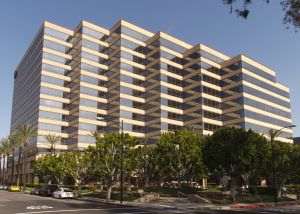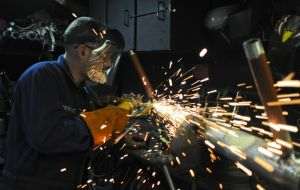November 20, 1995 - The first trading session is held on the Bucharest Stock Exchange (BSE), after, in April, the BSE was re-established as an institution of public interest.
November 20, 2019 - The shareholders of our stock exchange operator meet to elect their directors and president, for a period of four years starting with January next year.
Even after almost a quarter of a century since the first transaction was made at BSE, the institution is still looking for the North. Twelve candidates registered for the nine seats on the Board of Directors, three of them aiming for the chairman position.
By accessing the BSE website, we find that the mission of the institution, that is, the one that defines its rationale for existing, is: "transforming the local capital market into an active financing instrument for the Romanian economy".
Between November 2004 and April 2019, only thirteen companies used the stock exchange mechanisms for capital increases, according to the data disclosed by the BSE this spring. Not even in a moment of euphoria can we say that our stock exchange is an active vehicle for financing the economy.
The website of the BSE also informs us that its vision, which illustrates what the Stock Exchange wants to become in the future, is: "to build one of the most performing capital markets in Central and Eastern Europe by creating attractive opportunities for companies and investors, in a dynamic and transparent environment".
With a market value of listed companies of only about 10% of the Gross Domestic Product, compared to Poland, which has a publicly traded capitalization of 30% of GDP, with a turnover of 2133 million euros in 2018 (according to data published by the European Federation of Securities Exchanges - FESE), well below the markets of Budapest - 8674 million euros, Prague - 5551 million euros or Warsaw - 48311 million euros and with the prospect of entering the category of secondary emerging markets, whereas Hungary and the Czech Republic are advanced emerging markets, and Poland is actually in the developed markets tier, it is clear that our market is not among the best performing ones in Central and Eastern Europe.
Mihaela Bîciu, Claudia Ionescu, Valerian Ionescu, Gabriel Marica, Octavian Molnar, Otto Naegli, Robert Pană, Răzvan Raţ, Ştefan Szitas, Radu Hanga, Dragoş Neacşu and Dan Paul were competing today for a seat on the board of the Exchange, with the latter three running for the position of chairman of the Board of Directors.
In Chapter II, art. 46, paragraph (1) of the Articles of Incorporation of the BSE we find, that the board of the capital market operator: "establishes the company's general development strategy and submits it to the Ordinary General Shareholder Meeting for approval".
Therefore, the managers of the Bucharest Stock Exchange are those that set the general direction which is going to be followed by the operator of our Romanian stock market.
I don't know if over the last four or eight years, the Board of Directors led by Lucian Anghel had a coherent plan of action, based on a thorough analysis of the existing situation, which would clearly outline the organizational goals for various timeframes, what actions they were going to take and how, what resources would be needed and how they were going to be directed towards reaching the aforementioned goals.
Regarding results, although some listings of companies and bond issues have been made, and our market will be promoted to the category of secondary emerging markets in autumn next year, the activity at the BSE has not seen any improvement in the interim, as the number of brokerages is constantly decreasing and turnover is stagnating.
It is true that the process of setting up the Central Counterparty was started, but it was not until later, after Adrian Tănase became CEO of the BSE, who undertook this project, declaring publicly that it was one of the objectives of his term.
Even so, the perception in the market is that the stock market has stagnated and the reality proves it. Apart from the specialized publications and several hundred, maybe thousands of investors, nobody is interested and knows about the elections at the BSE.
It is the image of the level of market development.
Today, the shareholders of our stock exchange are electing the Board of Directors and, with two exceptions, the candidates for the BSE board have not made widely known their plans for the next four years at the helm of the market operator.
It can be argued that the effort would be fruitless, given that it does not matter what you know, what you can or what strategy you have, but whether you are supported by SIFX, the Y administrator of the 2nd Pillar or the European Bank for Reconstruction and Development (EBRD). That would be true, but in this particular case we are dealing with a rather myopic approach of BSE shareholders who, moreover, have rarely managed to join forces together to build something.
It's also what happens when you are in charge of an organization and you do not have a compass to show you the North. The Bucharest Stock Exchange is no exception, and the reality of the nearly 25 years indisputably proves it - it is a market outside the European charts, with a ridiculous liquidity and almost non-existent liquidity in the overall economy of our country.
In trading, in the absence of a strategy, success is temporary and failure comes much faster than the naive or beginners imagine. This is the case when you are in charge of an organization and do not have a compass that points to the north. The Bucharest Stock Exchange is not an exception, and the reality of the last one almost a quarter of a century proves it without denial - a market almost out of the European chart, with a ridiculous and almost non-existent liquidity in the overall economy of our country.
Regardless of who will be president, in addition to its basic function, of facilitating the financing of the economy, the Bucharest Stock Exchange must enter the popular consciousness.
Andrei Iacomi
NOTE:!
The FESE uses a methodology for measuring and publishing the trading turnover for various markets spread across four categories: Electronic Order Book Transactions (EOB), Off-EOB, Reporting Transactions and Dark Pools. In the above article only the figures for the first category - EOB, the most important one, are considered.
























































